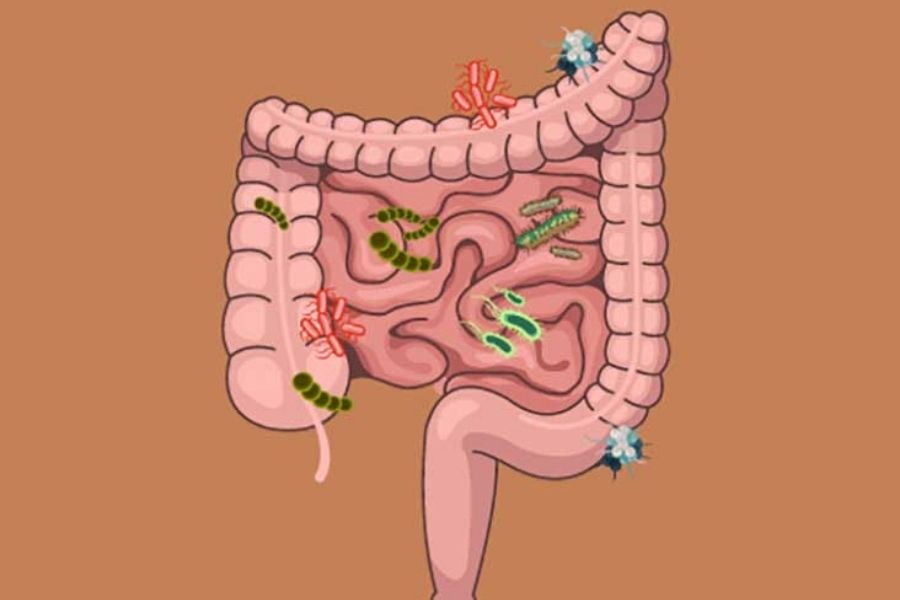Nutrition plays a crucial role in our life. We live in a pandemic era COVID-19, and hence, proper nutrition and diet are must be taken. It’s very much important to maintain our vitality.
Nutrition is at most important. But when you fall sick, people will suggest nutrition and what you should eat at breakfast, lunch, dinner. But it’s not right and correct. But what is functional nutrition, and how should you follow it for this? You need to contact a Dietician or Nutritionists. So, I am throwing light on functional nutrition in today’s blog.
What Is Functional Nutrition?

Functional nutrition has no definition, but functional nutrition considers every aspect of one’s health, diet, and overall lifestyle when giving them nutrition recommendations.
Hence, functional nutrition includes a systematic approach for health that takes care and is considered how nutrition is interrelated or vital for every part of the body. It states that it’s important for the body’s physiological functions. Functional nutrition helps to diagnosis your primary health problems. It helps identify whether it’s related to diet, illnesses, medications, lifestyle factors, exposure to toxins, antibiotic use, or other factors.
In the present scenario of the pandemic, standard healthcare is trying to suppress the symptoms with the help of medications. But when functional nutrition comes forth, these symptoms help them identify the health problem and your body issues. Functional nutritionists will help you to give a holistic health plan considering the complete aspect of your health. Hence, it’s purely personalized, like one size never fits all. The nutrition is designed with holistic health, which triggers to heal from the cellular level.
Functional Medicine And Functional Nutrition

These both the above terms are different from each other but sometimes are used differently at times. Functional medicine is a broad medical approach to treating health problems as a part of a system breakdown in your body. Functional nutrition goes in contrast to functional medicines. It highlights the food you eat, which is the fundamental component of health and the cause of many physical problems.
Process Of Functional Nutrition

Qualified Dieticians follow a certain hierarchy to determine what dietary changes a client will suit them best and benefit from it. Thus, the following things include:
- Evaluation of previous medical history
- Review of organ system
- Getting to know the history of supplements been taken
- Previous medical tests are done and results.
- Nutrient potential deficiencies.
They figure out all these things; hence, it is easy to start their holistic health program, including suggestions like eliminating processed foods, entire food groups like gluten or dairy. In some cases, nutritional supplements are added to improve digestion or to encourage beneficial bacteria. Then, they will teach their client how to improve or control lifestyle factors, like how to tackle stress or manage anxiety levels.
Functional nutrition practitioners are not there to give the final diagnosis. They aim to look at all health problems holistically, educate patients about how their behavior impedes their optimal health, and offer improvements.
Main Principles Of A Functional Nutrition Plan
There are five main principles of a functional nutrition plan. While going with all these, they have certain principles on how functional nutrition looks personally.
1. Essential Nutrition

Nutrients are vitamins, minerals, essential fatty acids, amino acids, probiotics, complex carbohydrates, and more vital for keeping your body healthy. It nourishes our body; hence, it is needed each day.
2. Avoid Toxins

Due to the increasing population, the time required to grow each crop is difficult. Hence, too many pesticides are used to grow in bulk, and we eat these pesticide-rich foods. Hence, one should check the source of your food.
3. Quality Foods

Actually, we all need quality in each thing we check our quality of food. Hence, taking processed junk food will prevent them from taking proper nutrients. Therefore, shift to eating regular healthy food like vegetables, fruits, etc., rather than frequent consumption of junk food.
4. Gut Health Is Important

Hippocrates told us that health begins and ends in the gut. Eating the world’s most nutritious diet will not keep you healthy if your digestive system is not prepared to process it. Listen to your gut and eat accordingly. 80% of your immune system is located in your gut. If it is not functioning well, you are at risk of infections, inflammation, autoimmune disease, and hormone balance.
5. Microbiome

Certain bacteria are important for the gut to keep healthy. Hence, one should include curd, yogurt, etc., in the diet. The human gut carries ten times more bacteria, comparing all cells that make up your body. These bacteria together are termed as a microbiome. It affects your immune system, body weight composition, mental health, memory formation, and risk of lifestyle diseases like diabetes.
Last but not least we should include a proper diet. Functional nutrition provides answers to all health problems, and it gives a targeted diet to you and your health.
Remember
Functional medicine is personal.
Functional nutrition uses food as medicine as it acts as a supplement.
Functional nutrition is a more powerful and wholesome food.







